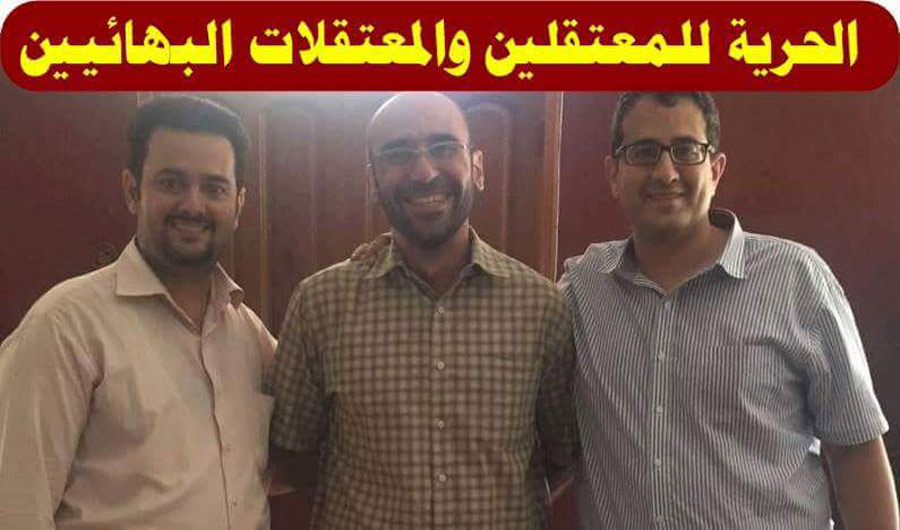The divine religions must be the cause of oneness among men, and the means of unity and love; they must promulgate universal peace, free man from every prejudice, bestow joy and gladness, exercise kindness to all men and do away with every difference and distinction. – Abdu’l-Baha, Selections from the Writings of Abdu’l-Baha, p. 28.
An extraordinary wave of support by organizations and individuals has kindled hope in the hearts of the Baha’is of Yemen in the wake of recent arrests there. It has also revealed the degree to which the motivation of Baha’is to build unity has resonated with so many in that country and across the region. One statement of support opened with this dramatic assertion of solidarity: “We are all Baha’is”.
On 10 August, armed, masked soldiers raided an educational gathering organized jointly by the Nida Foundation for Development as well as the Baha’i community of Yemen on the theme of moral empowerment and service. More than sixty participants were arrested, among them youth and children. Half were Baha’is and, currently, it is believed some fourteen remain in prison, including young mothers.
The raid provoked an unprecedented response from citizens and civil society. Widespread coverage in the region’s media—on television, on the internet, and in print—has also highlighted the constructive endeavors of the Baha’i community and the baseless and illogical nature of the arrests.
Two of the leading daily pan-Arab newspapers—Al-Arab and Al Quds Al-Arabi—covered the story extensively. Among the countless other news sources that have published related stories have been Al Morasel, Al Modon, Akhbar Al Khaleej, Gulf Eyes, Al Masdar, Mosnad News, Sadaa Adan, and Yemen Shabab.
“Why arrest a group of peaceful Baha’is when the country is full of arms dealers, gangs, instigators of sedition, saboteurs, spies, and lurking terrorists? What courage is there in the arrest of a group of defenseless children and youth, when Yemen is full of thousands of murderers, thieves, criminals, gangs, and armed religious militias?” asks writer Sadiq Al-Qadi in an article on Al-Morasel News titled “For the Sake of Faith, Nation, and Humanity: Release the Baha’is.”
“How does the country benefit from persecuting a group that believes in obedience to one’s country? What benefit in arresting people who regard work as worship and strive to serve the community?” continues the article.
The Nida Foundation and the Baha’i community in Yemen operate programs for the empowerment of youth so that they become oriented towards the social, moral, and intellectual development of society in practical ways. Both have also been concerned with raising the status of women and promoting the concept of equality and, in particular, the education of the girl child. Furthermore, the Nida Foundation has held discussions with tribal leaders on the profound implications of peace, reconciliation, and co-existence in that war-torn society.
Support also has come from tribal leaders and fellow citizens of various backgrounds. For example, on the website of “The People of the Quran”—a Muslim religious order also called the Quranis, which has millions of adherents throughout the Arab region—the peaceful nature of the educational gathering was emphasized. The site stated that the event had been held “in an atmosphere of love and loyalty for Yemen; a program filled with enthusiasm, determination, and selflessness to serve the causes of peace and coexistence, community building, and unity among the children of their country.”
“We are all Baha’is!” begins their statement.
“If you want to spread an ideology, persecute it! This sums up the human experience with any new way of thinking,” the statement continues.
Amnesty International’s regional office has issued a statement condemning the government’s actions. “The arbitrary arrests of Baha’i people for doing nothing more than attending a peaceful community event is completely unjustifiable. It is just the latest example of authorities’ persecution of minority faiths,” said Magdalena Mughrabi, the organization’s Deputy Director of the Middle East and North Africa Program.
Social media has also been alight with numerous messages and many hashtags have been set up, some in English and others in Arabic, by the supporters of Baha’is. #Free_Bahais; #Free_Bahai_Mothers; #Freedom_For_Bahais; and many similar hashtags have drawn attention to the arrests and highlighted the high character and aims of the Baha’is.

Messages calling for the release of Baha’is from prison in Yemen have flashed across the world. “Free the Baha’i prisoners and detainees” states the image above.
Multiple statements of support have echoed similar themes, namely the relevance of the activities of the Baha’is for the betterment of Yemen in a time of greatest need for constructive effort. Indeed, so overwhelming and widespread has been the reaction of Yemeni society in support of the detainees that some have questioned who might be the real instigators of this incident.
The Baha’i International Community Office at the UN in New York has also issued a statement providing details of the arrests.
Perhaps one of the most powerful interventions to date has been made by Arwa Othman, until recently a Minister in the government of Yemen and now a human rights activist. She wrote, “National Security: What function do you have today? The country is in flames from the war and you have forgotten your duties and raided an educational gathering for the youth which had just the same goals as those espoused in the civics text books your children study at school.”
Her statement continued: “The children, youth, and women who you arrested are not an enemy on whom you need to declare war and imprison, in violation of their rights—especially children’s rights. What evidence did you find in among the paper clippings of paper and crayons that a crime had been committed?”
Highlighting the contrast with the real challenges of the region, Ms. Othman stated: “What threat prompted you to enter a community building as if it was hosting a terrorist cell that was threatening public safety and the country’s sovereignty? What military camps did you discover in the memories of each child, woman, and teenager? What sleeping cells of religious and sectarian sedition, working for the interest of the enemies of Yemen, did you find in those civilized surroundings?”
Finally, referring to the women who had been arrested, she wrote: “What has come over you that you have arrested them? Their children are suffering from bereavement and loss! Some of those children are infants! What has happened to you and to your honor, National Security?”
















Comments
Sign in or create an account
Continue with Googleor